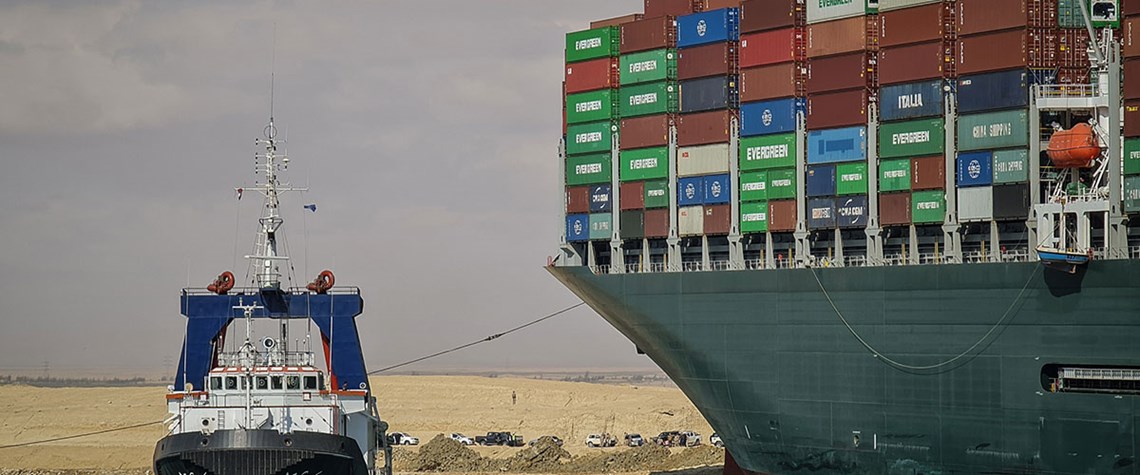Suez crisis highlights bottlenecks
The blockage of the Suez Canal by a single vessel highlights how important navigational chokepoints are for the shipping sector and commodities markets
Containership the Ever Given was refloated in late March, six days after running aground and blocking the Suez Canal in both directions, causing significant disruption and a build-up of traffic waiting to traverse the waterway. The alternative to taking Suez is to circumnavigate Africa via the Cape of Good Hope. The distance from Rotterdam to Japan via the Cape route, for example, is around 25pc longer, and voyage time at 11 knots increases to around 54 days, up from 42 days via Suez. Hormuz is the world’s most important oil transit chokepoint That means increased fuel expenditure and the potential for knock-on disruption to port loading and unloading schedules and any subsequent voy

Also in this section
24 July 2025
The reaction to proposed sanctions on Russian oil buyers has been muted, suggesting trader fatigue with Trump’s frequent bold and erratic threats
24 July 2025
Trump energy policies and changing consumer trends to upend oil supply and demand
24 July 2025
Despite significant crude projections over the next five years, Latin America’s largest economy could be forced to start importing unless action is taken
23 July 2025
The country’s energy minister explains in an exclusive interview how the country is taking a pragmatic and far-sighted approach to energy security and why he has great confidence in its oil sector








